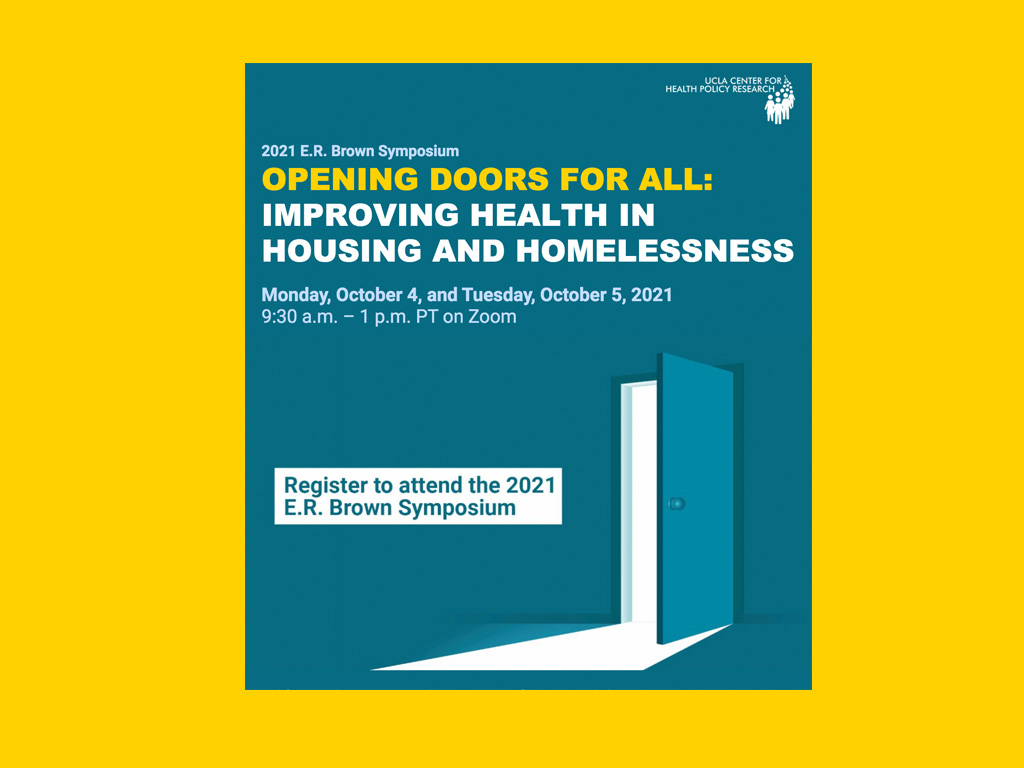California is home to more than a quarter of the country’s homeless population. In early 2020, 161,548 people experienced homelessness in California on any given day — a 40% increase over the last five years. The COVID-19 pandemic has further exacerbated the public health crisis faced by people experiencing homelessness: Housing security is a major determinant of health. There are no simple solutions to ending homelessness: The crisis is vast and complex, requiring well-coordinated systems, flexibility in approach, and implementation of individual-level interventions that support and house the most vulnerable Californians.
You’re invited to join the UCLA Center for Health Policy Research (CHPR) as we bring together public health leaders, community advocates, policymakers, and other thought leaders to help identify past successes and lessons learned, so that California can invest effectively with evidence-based solutions to creating a healthier, more prosperous California for all.
Confirmed speakers and panelists include:
Bill Purcell
Former Mayor, Metropolitan Nashville and Davidson County
|
|
Philip Mangano
President and CEO, The American Round Table to Abolish Homelessness
|
|
Isaac Bryan
California State Assemblymember, District 54
|
|
Michelle Cabrera
Executive Director, California County Behavioral Health Directors Association
|
|
Margot Kushel, MD
Director, UCSF Center for Vulnerable Populations
|
|
Eva Thibaudeau
CEO, Temenos Community Development Corporation
|
|
Gary Painter, PhD
Director, USC Sol Price Center for Social Innovation and Homelessness Policy Research Institute
|
|
Leepi Shimkhada, MPP
Director, Housing and Services, Los Angeles County Department of Health Services
|
|
Nadereh Pourat, PhD
Director, Health Economics and Evaluation Research Program, and Associate Director, UCLA CHPR
|
|
UCLA CHPR Director Ninez A. Ponce, PhD, MPP, will provide the opening remarks, with a special welcome by UCLA Fielding School of Public Health Dean Ron Brookmeyer, PhD.
From a lack of affordable housing and health, mental health, and substance abuse services, to unemployment, incarceration, structural racism, domestic violence, and more, speakers will discuss some of the underlying economic and social factors contributing to homelessness and what we can do to understand and effectively address these factors simultaneously with investments that can improve the health and well-being of all Californians.

